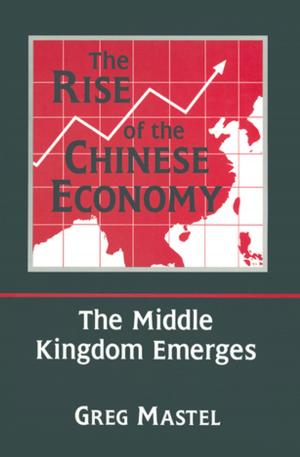The South Asian Diaspora
Transnational networks and changing identities
Nonfiction, Social & Cultural Studies, Social Science, Cultural Studies, Ethnic Studies, Political Science| Author: | ISBN: | 9781134105946 | |
| Publisher: | Taylor and Francis | Publication: | July 25, 2008 |
| Imprint: | Routledge | Language: | English |
| Author: | |
| ISBN: | 9781134105946 |
| Publisher: | Taylor and Francis |
| Publication: | July 25, 2008 |
| Imprint: | Routledge |
| Language: | English |
The South Asian Diaspora numbers just under 30 million people worldwide, and it is recognized as the most widely dispersed diaspora. It is, moreover, one which of late has seen phenomenal growth, both due to natural increase and the result of a continued movement of professionals and labourers in the late 20th and early 21st century from the subcontinent to countries such as the United States, the United Kingdom, Canada, Australia and Singapore.
This book uses the concept of transnational networks as a means to understand the South Asian diaspora. Taking into account diverse aspects of formation and development, the concept breaks down the artificial boundaries that have been dominating the literature between the ‘old’ and the ‘new’ era of migration. Thereby the continued connectedness of most historic South Asian settlements is shown, and the fluid nature of South Asian identities is explored.
Offering a unique and original insight into the South Asian diaspora, this book will be of interest to academics working in the field of South Asian Studies, Diaspora and Cultural Studies, Anthropology, Transnationalism and Globalisation.
The South Asian Diaspora numbers just under 30 million people worldwide, and it is recognized as the most widely dispersed diaspora. It is, moreover, one which of late has seen phenomenal growth, both due to natural increase and the result of a continued movement of professionals and labourers in the late 20th and early 21st century from the subcontinent to countries such as the United States, the United Kingdom, Canada, Australia and Singapore.
This book uses the concept of transnational networks as a means to understand the South Asian diaspora. Taking into account diverse aspects of formation and development, the concept breaks down the artificial boundaries that have been dominating the literature between the ‘old’ and the ‘new’ era of migration. Thereby the continued connectedness of most historic South Asian settlements is shown, and the fluid nature of South Asian identities is explored.
Offering a unique and original insight into the South Asian diaspora, this book will be of interest to academics working in the field of South Asian Studies, Diaspora and Cultural Studies, Anthropology, Transnationalism and Globalisation.















